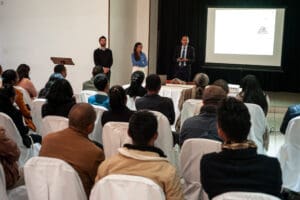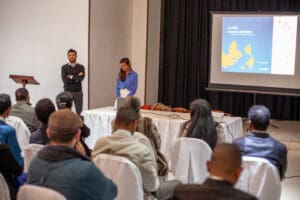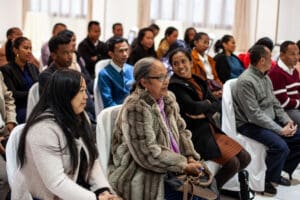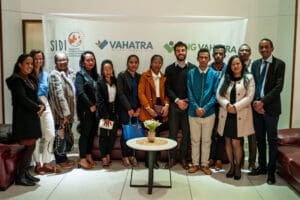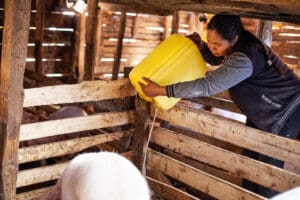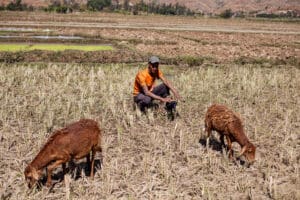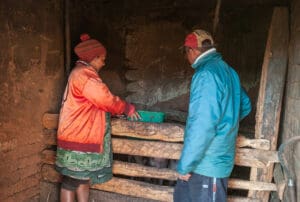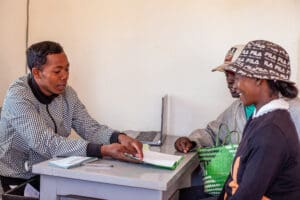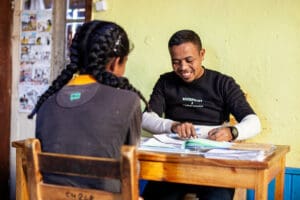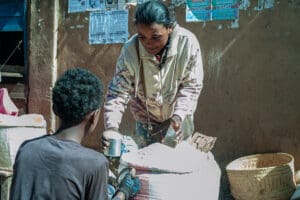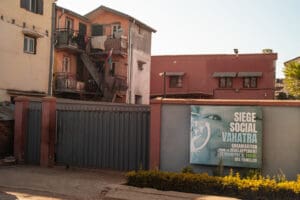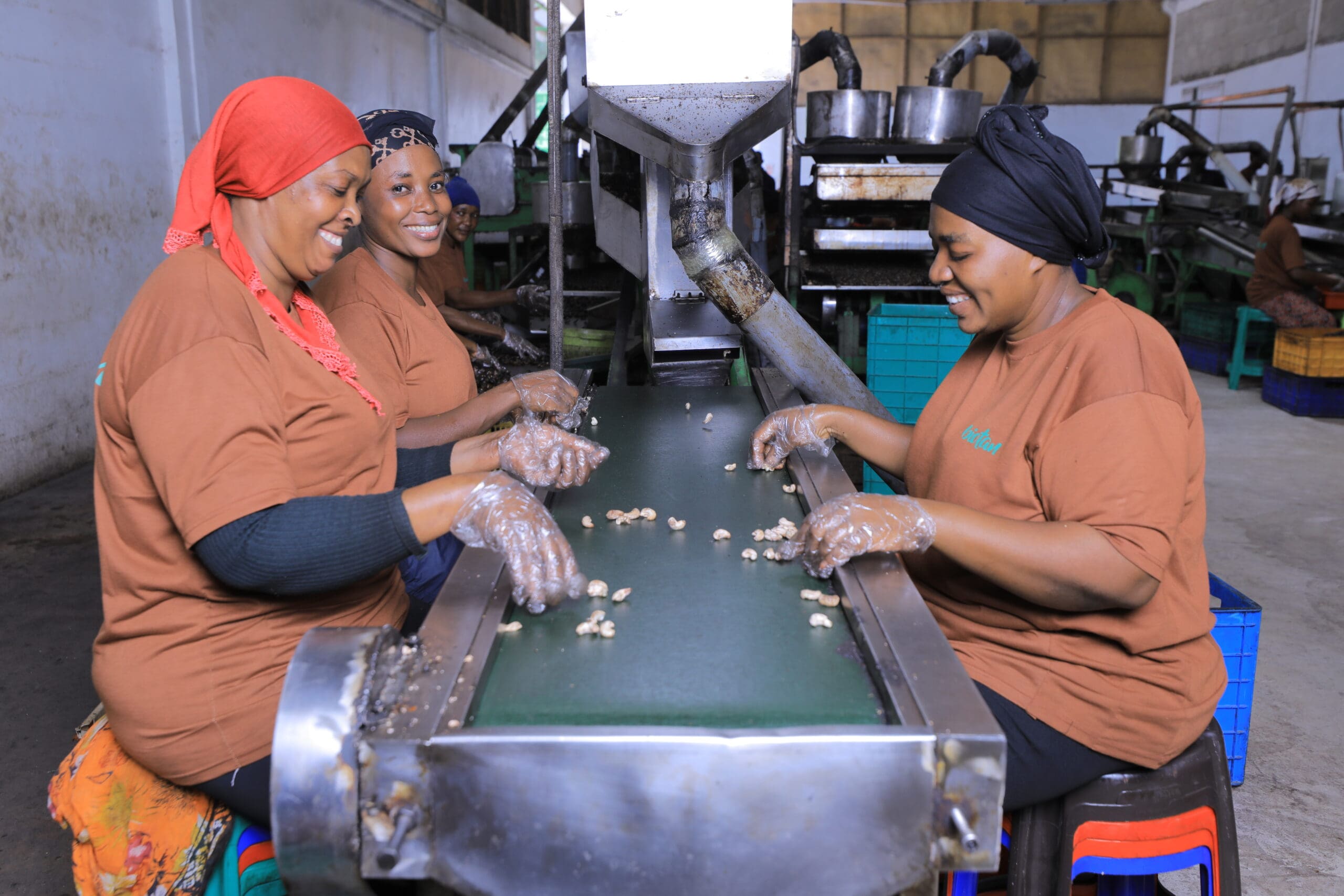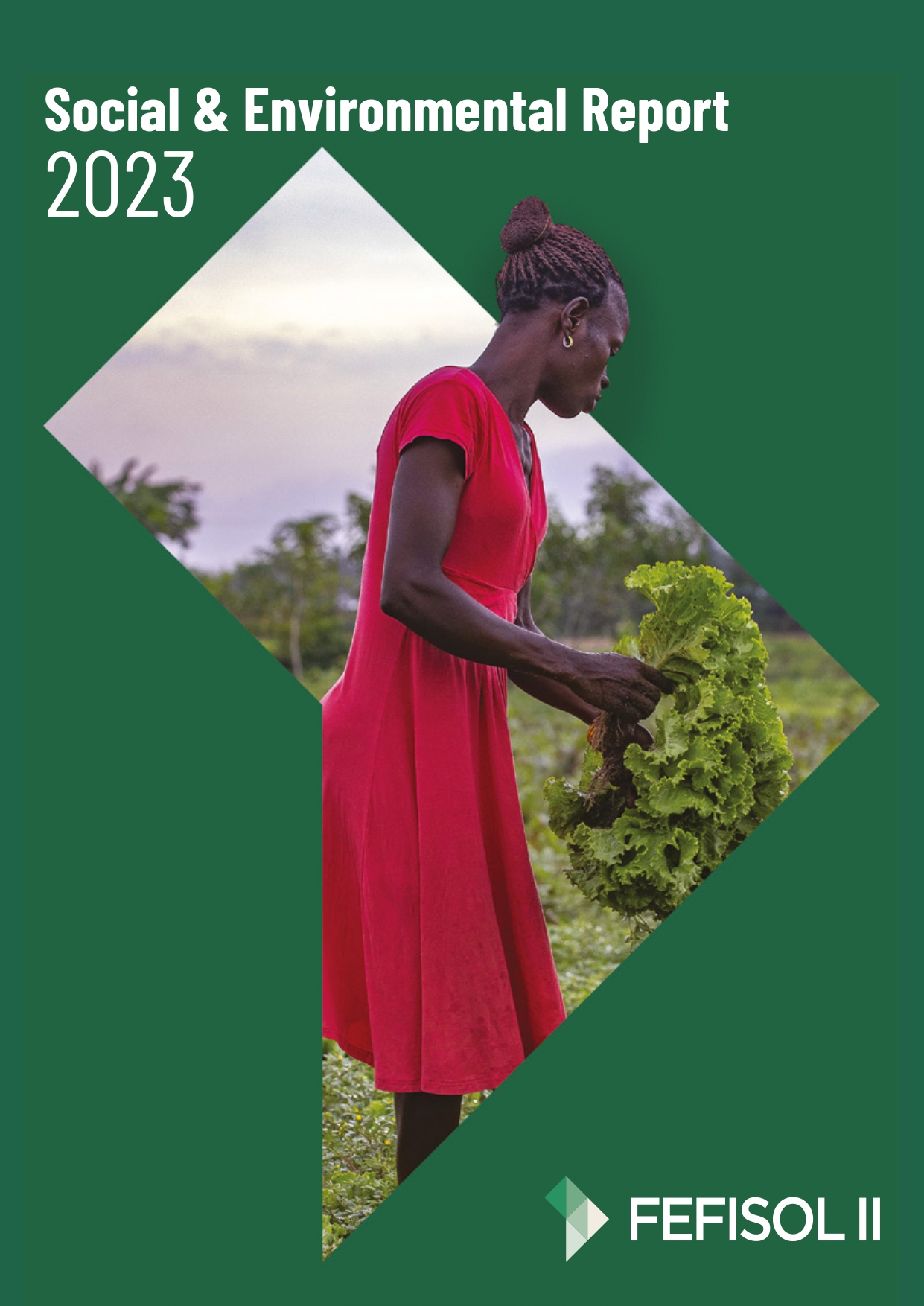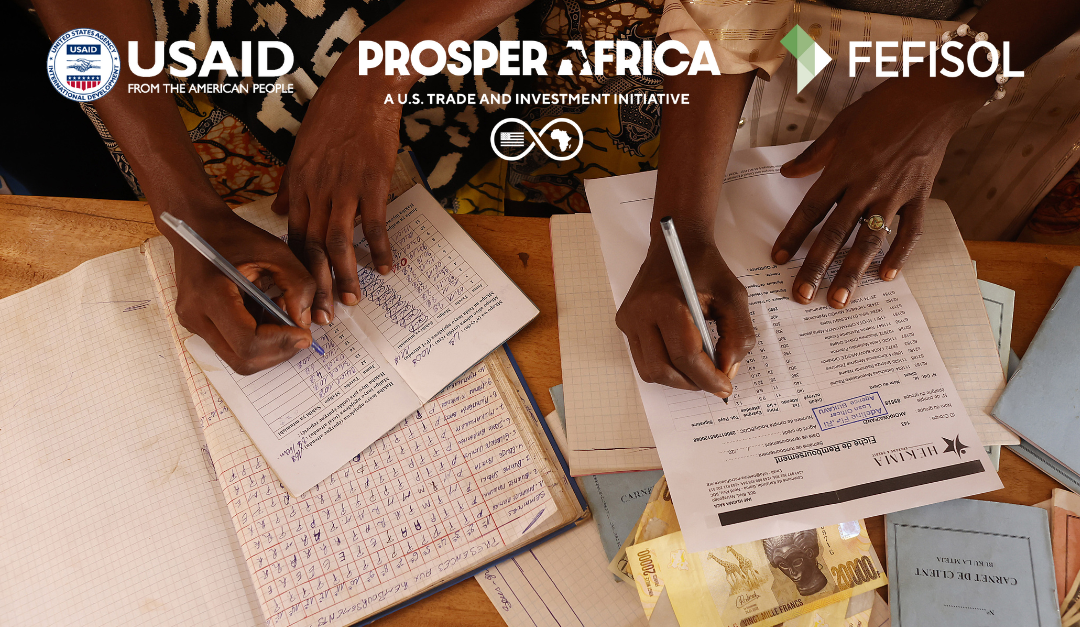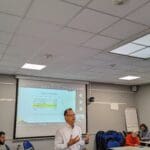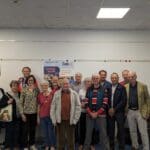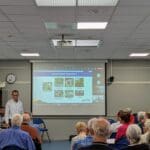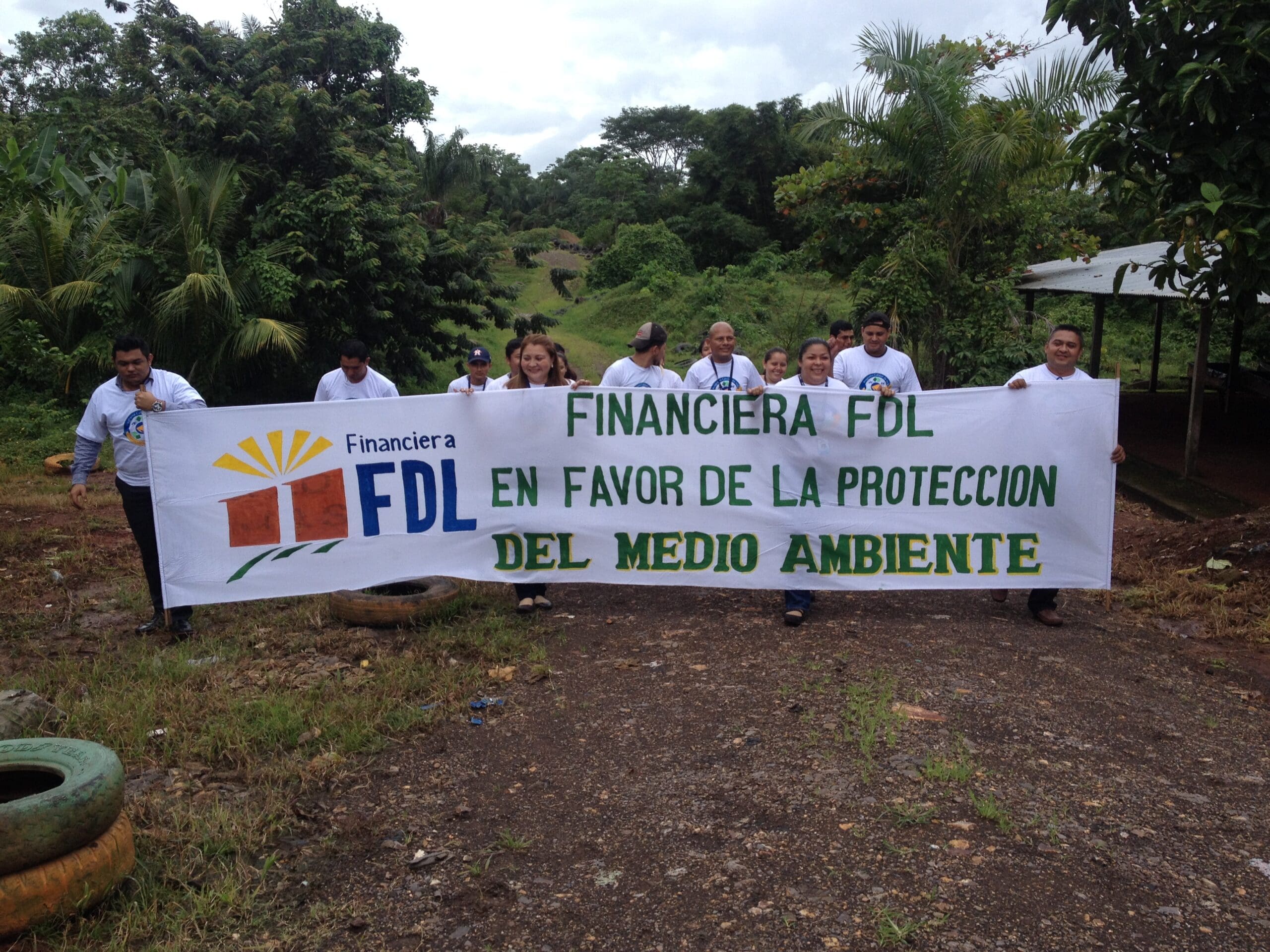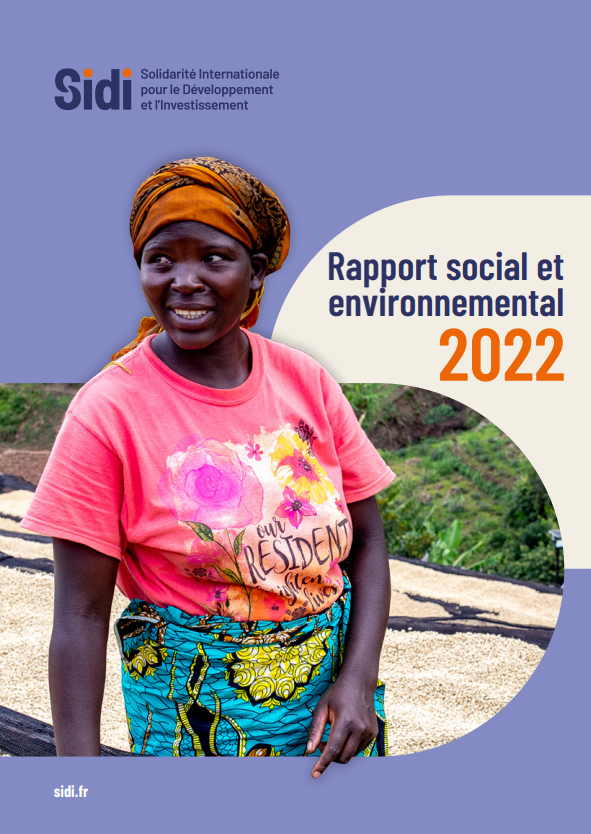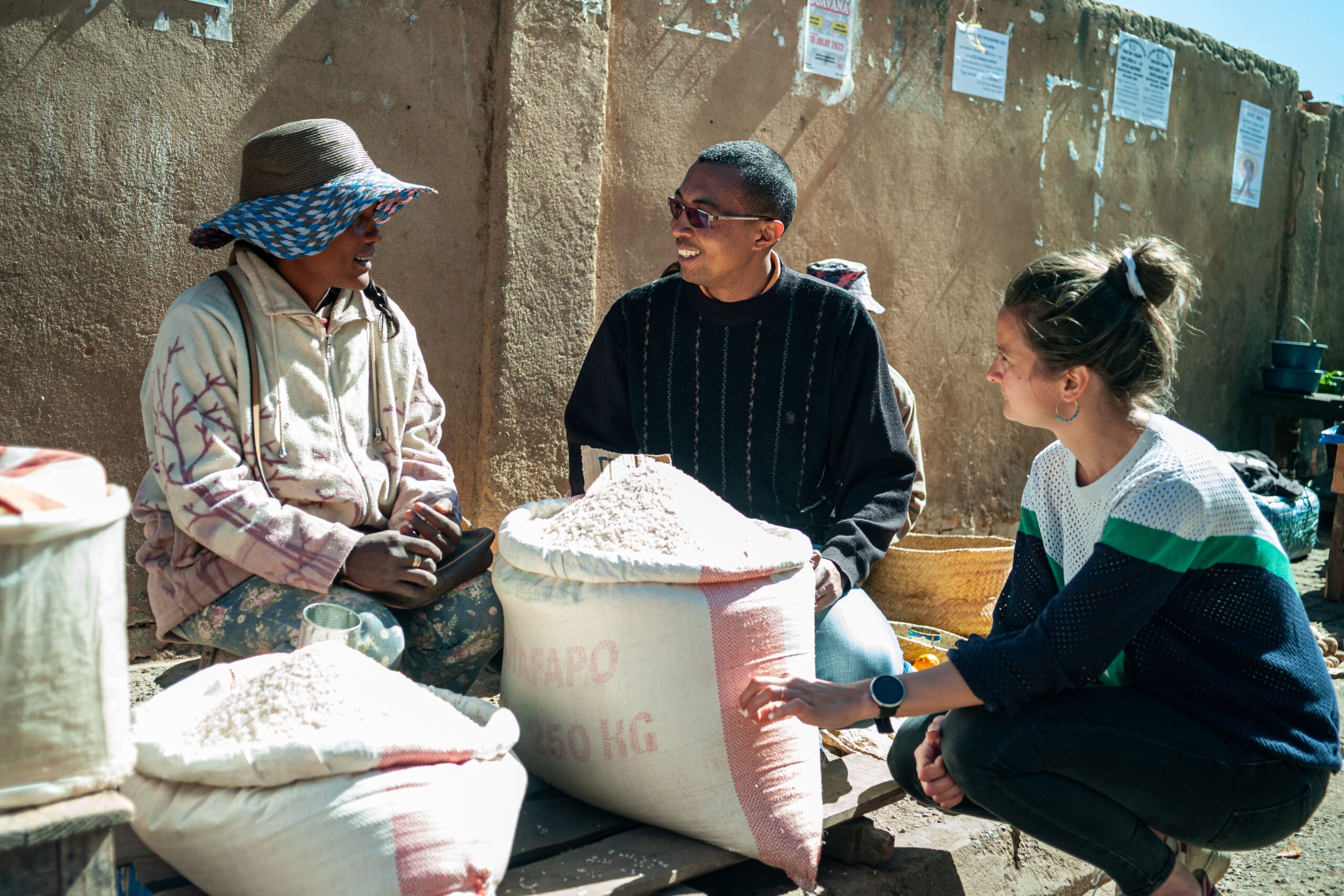
For the past five years, SIDI has been supporting the microfinance institution (MFI) Vahatra – Racines in Malagasy – in its institutional transformation. This year marks a decisive step: its transition from a microcredit NGO to a limited company (SA) regulated by the Madagascar Banking Commission. This change, the fruit of several years’ preparation, will enable Vahatra to consolidate its model and strengthen its capacity to better serve its 20,000 customers. These beneficiaries, mostly from rural areas between Tananarive, Antsirabé and Ampefy, often live below the extreme poverty line, in a country where 80% of the population subsists on less than US$1.90 a day, and where vulnerability to climate change is one of the highest in the world. To mark this transition, Joan Penche, SIDI‘s Head of East and Southern Africa, and Gabrielle Orliange, in charge of partnerships for Madagascar, went on a mission to the country. They exchanged views with Vahatra’s teams, visited its rural branches and met a dozen customers to better understand their reality and the services provided by the institution.
Institutionalization: a lever for social and financial impact
Vahatra’s institutionalization represents much more than an administrative change. The process involved a complete transformation: updating information systems, overhauling processes, preparing an application for approval by the banking commission, and setting up a new governance structure. SIDI supported this development by providing technical support for the legal process of obtaining approval and migrating to a new information system, as well as strategic support, in particular through the active participation of the partnership officer on the steering committee for this transition. In order to perpetuate this partnership, SIDI became a shareholder in the newly-created company, with a 23% stake (EUR 130,000), and obtained two directorships. It also continues to support Vahatra through a guarantee enabling the institution to take out a loan with a local bank. This dual commitment highlights the strategic importance of this institution for rural development in Madagascar.
A holistic vision to serve vulnerable populations
If SIDI is putting so many resources into the transformation of Vahatra, it’s because the partnership with this small MFI has a special meaning. Vahatra stands out for its integrated approach, combining financial services with tailor-made technical and social support for its clients, whom it calls its partners. With extensive experience in agricultural financing, it has developed a lending methodology tailored to the needs of the producers and breeders it finances. In addition to financial services, Vahatra offers technical services and training: for example, Vahatra systematically provides technical assistance to pig farmers receiving financial support (who account for 35% of the MFI’s portfolio) on measures to limit the risk of swine fever. Vahatra has also set up a compulsory mutual health insurance scheme for all its partner clients. This service was developed following the twofold observation that, in the event of an accident, the medical costs involved were often too high for the households targeted by Vahatra: this led them to have to choose between seeking treatment or repaying their loan. The mutual insurer covers the whole household for the duration of the loan. Finally, in line with its developmental vision, Vahatra also offers additional social and environmental services, including awareness-raising sessions on child and maternal health; coaching on obtaining identity papers; and the supply of seedlings from nurseries managed by the MFI. These actions strengthen community resilience while promoting sustainable practices.
Innovative tools to measure impact and limit risk
Social innovation is at the heart of Vahatra’s approach. The institution also distinguishes itself by the analytical tools it uses to evaluate and monitor its beneficiary clients. At a time when the microfinance sector is devoting increasing attention to outcome measurement, Vahatra is already ahead of the game. For several years now, it has been using the “family photo”, an analysis grid that measures the multidimensional poverty of its beneficiaries through criteria such as housing, nutrition or access to water. This tool also assesses the evolution of customers’ living conditions over several loan cycles. At the same time, the MFI has developed specific analysis grids for each of the agricultural sectors it finances (pork, rice, potatoes). These tools enable loan officers to identify the risks specific to each farm and propose appropriate solutions. For pig farmers, for example, the grid assesses factors such as feed quality, shelter and access to veterinary care.
A model for the future
Faced with regulatory and operational challenges, the institutionalization of Vahatra marks a strategic turning point. By separating its microfinance activities from its social and healthcare activities, the new limited company has gained in efficiency, while retaining its strong social mission, now carried out by the NGO. The partnership between SIDI and Vahatra bears witness to the impact that solidarity finance can have on vulnerable communities. By combining technical expertise and human commitment, this project demonstrates that it is possible to reconcile economic viability with lasting social impact. Thanks to this transformation, Vahatra is better equipped to respond to the complex challenges of poverty and climate change, helping to build a brighter future for Madagascar’s rural populations.

